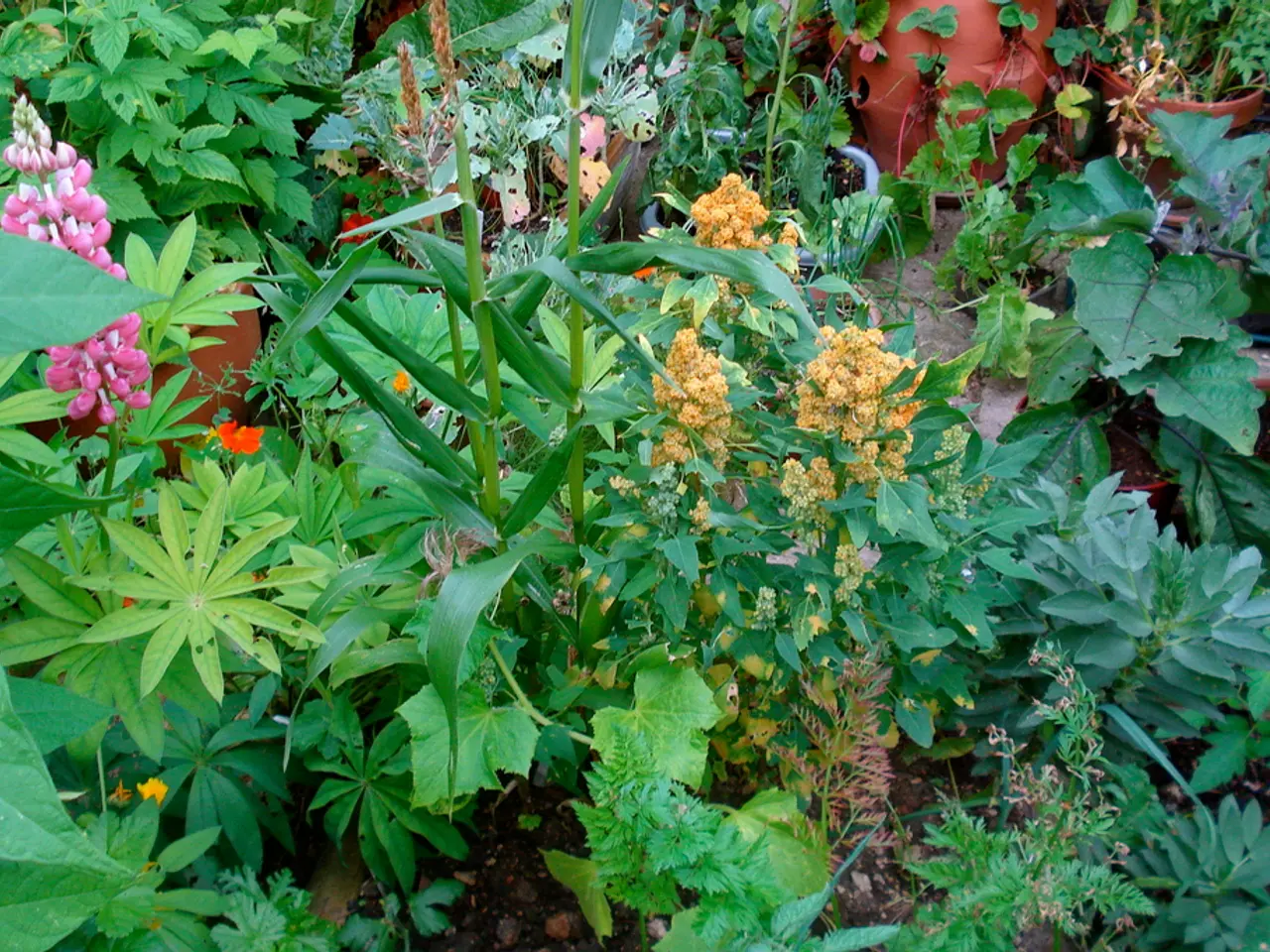Enriched Soil with Phosphorus: Amplifying Growth for Plants
For gardeners seeking a natural approach to enrich their soil with phosphorus, several organic methods offer a sustainable solution. By using compost enriched with animal manure, bone meal, fish bone meal or fish emulsion, rock phosphate, and kelp meal, you can provide phosphorus in forms that plants can gradually access, supporting healthy root development, flowering, and fruiting.
Compost enriched with animal manure
Chicken and cow manure composts are particularly rich in phosphorus. To ensure the best results, it's essential the manure is well-composted to avoid excess nitrogen and potential pathogens. Composting manure can eliminate the issues of high ammonia levels and make it lighter and easier to handle. Manure should be applied several months before harvesting edible crops and can be mixed into the soil or spread on top as a mulch.
Bone meal
A slow-release, organic phosphorus source also supplying calcium, bone meal is effective especially in acidic to neutral soils (pH below 7). To get the most out of bone meal, it's best to incorporate it into the soil rather than top-dressing to prevent animals from digging it up.
Fish bone meal and fish emulsion
Fish bone meal can be applied as a granular side dressing or foliar feed, providing a steady supply of phosphorus to the plants. Fish emulsion acts faster as a liquid phosphorus boost but may attract pets or wildlife due to its strong odour. To use fish emulsion, dilute it with water before applying to plants, mixing about half an ounce with one gallon of water. The odour of fish emulsion may be strong but will dissipate within a day or so.
Rock phosphate (soft rock phosphate)
Mined rock ground into powder, rock phosphate releases phosphorus slowly when worked into the soil. It also adds potassium and micronutrients to the soil. To use rock phosphate, it should be incorporated into the soil before planting, or mixed with compost or manures for additional soil-building benefits.
Kelp meal
Derived from seaweed, kelp meal contains phosphorus along with a spectrum of trace minerals, improving overall plant health when sprinkled around plant bases.
These organic phosphorus sources differ in nutrient release speed—bone meal, rock phosphate, and manure compost are slower release, while fish emulsion provides a quicker phosphorus boost. Using these methods improves soil fertility and plant growth naturally without synthetic chemicals.
Soil testing is important to ensure you are not adding too much phosphorus, as this can cause an imbalance with other nutrients. Other manures such as cow, pig, and sheep manure are also commonly used to add phosphorus and other nutrients to the soil.
When using fish emulsion, dilute it with water before applying to plants, mixing about half an ounce with one gallon of water. To make fish emulsion at home, you will need a bucket, mesh screen, sealable bottle, dried leaves, sawdust or other brown material, fish scraps, and water.
Manure should be well-rotted or composted to avoid burning plants and spreading pathogens. Manure is typically applied in the fall or early spring to allow time for it to break down before planting. Chicken and horse manure contain the highest amounts of phosphorus, with about 80% taken up by the soil immediately.
In conclusion, by incorporating these organic methods, gardeners can boost the phosphorus levels in their soil, promoting healthy plant growth and overall soil fertility.
Organic gardening methods such as using compost enriched with animal manure, bone meal, fish bone meal or fish emulsion, rock phosphate, and kelp meal can provide phosphorus in forms that plants can gradually access, supporting healthy root development, flowering, and fruiting. Bone meal, in particular, is a slow-release, organic phosphorus source effective in acidic to neutral soils. Fish bone meal can be applied as a granular side dressing or foliar feed, providing a steady supply of phosphorus to the plants, while fish emulsion acts faster as a liquid phosphorus boost but may attract pets or wildlife due to its strong odour. Rock phosphate, mined and ground into powder, releases phosphorus slowly when worked into the soil, also adding potassium and micronutrients. Kelp meal, derived from seaweed, contains phosphorus along with a spectrum of trace minerals, improving overall plant health when sprinkled around plant bases. These methods improve soil fertility and plant growth naturally without synthetic chemicals, making them beneficial for home-and-garden enthusiasts seeking a health-and-wellness lifestyle that includes fitness-and-exercise and a commitment to the home-and-garden realm as part of a holistic lifestyle.






